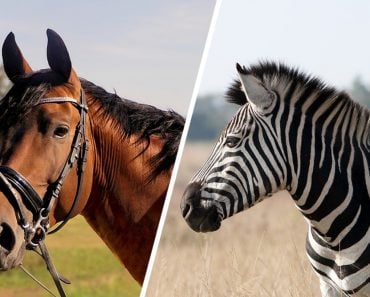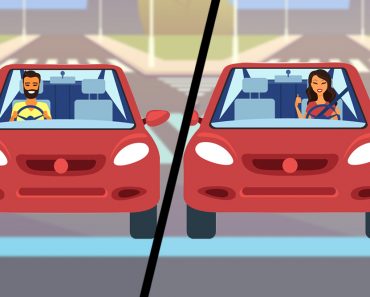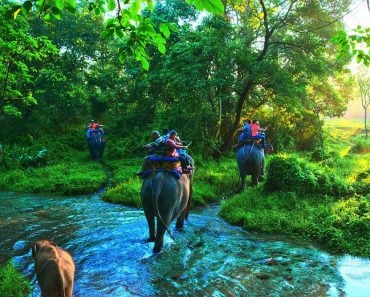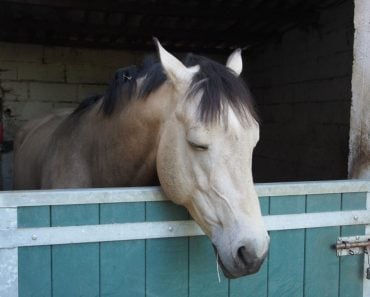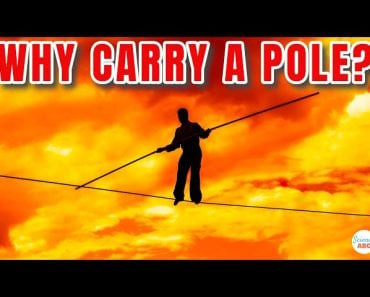Table of Contents (click to expand)
The primary reason that mounted police are still used in some big cities is for crowd control. Horses offer a significant height advantage, and move easily through thick pockets of people. Mounted policemen are found to be particularly effective in breaking up and dispersing unruly crowds.
Every country does its best to equip its police force with modern equipment. While sheriffs in olden times used to wield nothing but a handgun, modern policemen in developed nations possess a number of tools in addition to a weapon, including a microphone, body camera, walkie-talkie etc. It’s fair to say that sometimes it seems like police departments are in a technological arms race!
Still, many countries, no matter how developed they are, maintain one of law enforcement’s oldest policing methods: a cop riding around the city on a horse.
If you watch international news, then you’ve probably seen modern cops riding horses, especially in big cities like New York, London, Berlin etc.
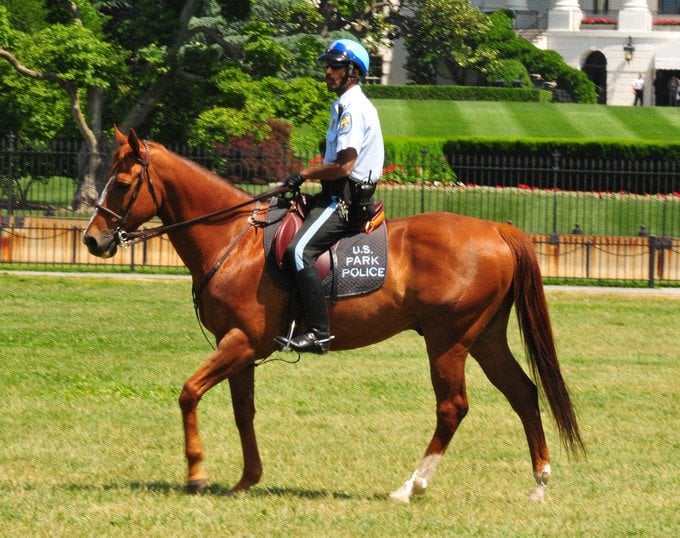
Have you ever wondered why such developed cities and ‘global centers’ still have cops riding horses on the streets?
As it turns out, there are a few reasons why large, developed cities still maintain a mounted division of policemen.
Recommended Video for you:
Crowd Control
This is arguably the biggest reason for why you can still see cops riding horses in large cities. Horses offer a significant height advantage, and move easily through thick pockets of people. As such, being on a horse affords more visibility and situational awareness to the officer riding it.
Mounted policemen are found to be particularly effective in breaking up and dispersing unruly crowds, especially the kind often seen following football matches. The ‘riots’ that erupt between the fans of two competing teams can usually be dealt with by only a handful of mounted policemen.
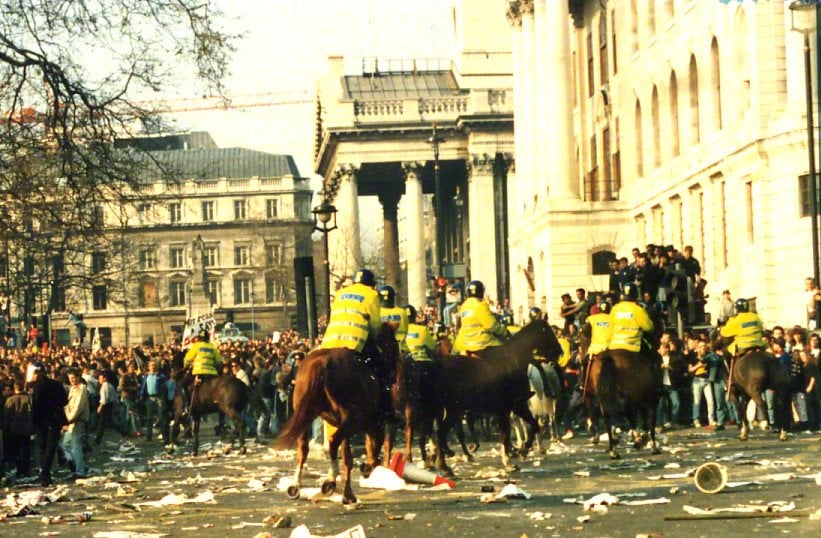
The reason mounted police are so effective for the purpose of crowd control is that horses are big creatures. If you stand in front of them and they push you, then you are going to move out of the way, no matter what. There is also an innate fear that we humans have of big creatures, and the associated terror of being trampled by them.
In addition to that, some people won’t think twice before smashing or damaging a cop car during a riot, but it’s an entirely different ball game when it’s a big animal that you’re thinking of messing with – an animal that can (and will) fight back… with a vengeance.
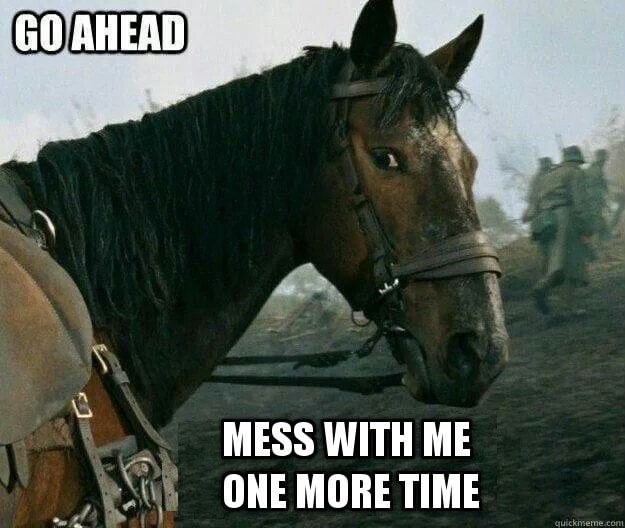
In fact, there are numerous real-life examples in the UK when 3-4 mounted cops caused a rowdy crowd to scatter swiftly, even after nearly two dozen riot-geared cops were unsuccessful in doing so.
Easy To Maneuver
Horses can move and maneuver in tighter areas, such as shop streets, sidewalks etc. Although cars can also, technically, move through these areas, it’s not advised, as they may be too noisy or impractical to use in specific areas, and can lead to congestion on the streets. Horses can not only easily wade through such ‘tight’ areas, but can also do so pretty rapidly and efficiently (as people generally tend to move out of the way of a horse).
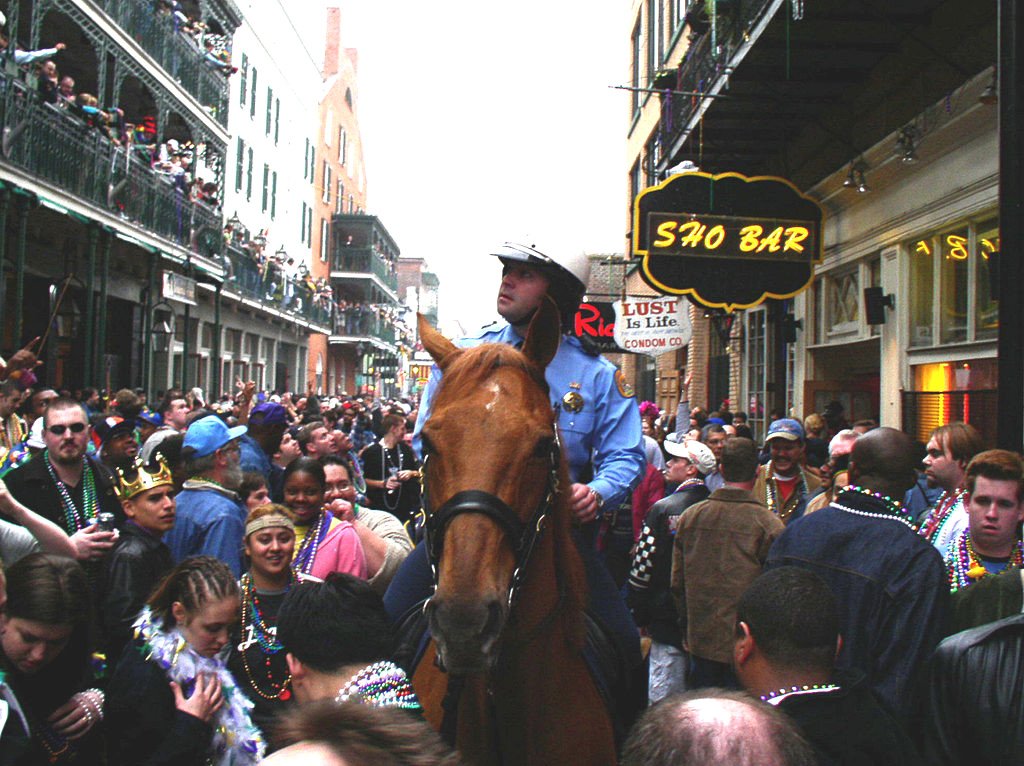
In addition to offering great accessibility to tighter spaces, horses can also be used in places where cars cannot possibly go, such as through the narrow entrance of a park or in wilderness areas.
Search And Rescue
Policeman riding on horseback are also trained for conducting search and rescue operations. They can carry plenty of supplies and continue searching for long periods of time, especially in areas where squad cars cannot go.
Better Visibility
The primary task of any police force is to maintain law and order on the streets. The idea of a mounted cop serves as a preemptive measure to spot and stop fights or scuffles on the streets before they get ugly/dangerous and threaten the lives of people nearby. A policeman on horseback has a height advantage as opposed to a policeman driving around in a car, so the former is often a better option for patrolling particularly busy streets.
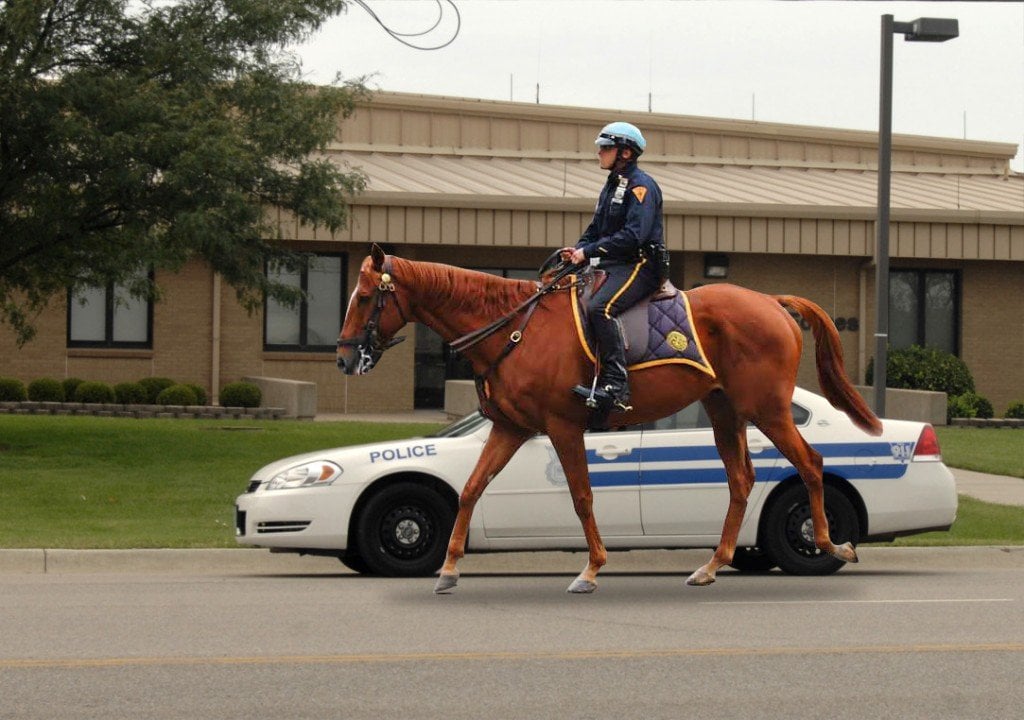
Not only does a mounted cop have a greater overall view of his surroundings, but it also helps others on the street to easily locate a mounted cop and approach them when needed.
History And Culture
Horses are significantly integrated in the history, tradition and culture of many countries. In such places (e.g., Sweden, Scotland etc.), mounted police units not only serve as a policing force, but also serve as a subtle symbol of how irreplaceable a role horses play (or played in the past) in their culture and traditions.
More Friendly And Personable
This point is quite subjective. Many people think that cops riding on horseback somehow appear to be more friendly, approachable and even personable than a cop riding in a metal box with its windows up. Many people are more likely to approach and speak to a mounted policeman than one who’s riding in a cop car.
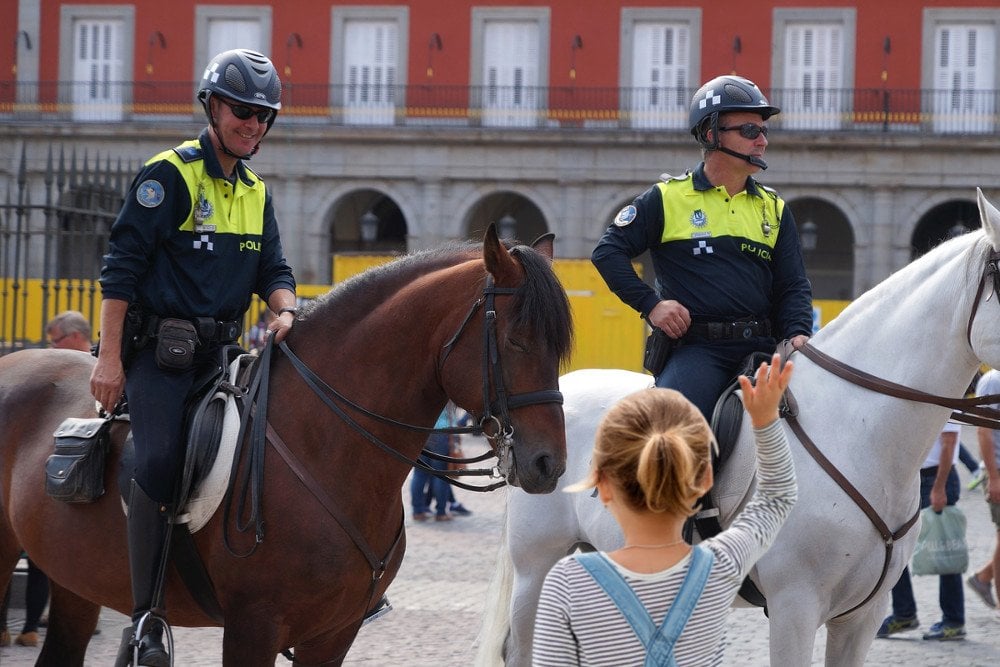
In many places, people even wave at mounted cops and yell ‘howdy’ from a distance, which adds to the overall amiability of a mounted cop among the masses.
References (click to expand)
- Mounted Unit - www.mass.gov
- Mounted Police Unit | St. Charles, MO - Official Website. stcharlescitymo.gov
- Horse Mounted Patrol - United States Park Police (U.S. .... The National Park Service
- Mounted Unit - UMass Police Department. The University of Massachusetts Amherst
- Police Department - City of Minneapolis. minneapolismn.gov
- Mounted Unit | City of Lexington - Lexingtonky.gov. lexingtonky.gov
- Mounted Patrol - Our Horses - City of Houston. houstontx.gov
- Tempe Police Department Mounted Unit | City of Tempe, AZ. tempe.gov



